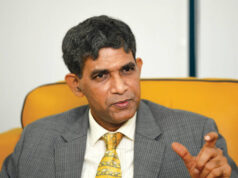New Delhi – The Indian government revealed plans on Wednesday to push spending and poverty alleviation schemes in rural areas in the upcoming fiscal year to try offset the economic setback of removing high-value currency notes from circulation.
Presenting the 2017-18 annual budget, which runs April 2017 to March 2018, Finance Minister Arun Jaitley said spending in the rural and farm sectors would be increased by 24 per cent from the previous year.
He also announced a funding increase for a massive rural household employment guarantee scheme, called the MGNREGA, and for rural infrastructure projects on roads, electricity, sanitation and drinking water.
The sudden withdrawal of the 500-rupee (7.60-dollar) and 1000-rupee notes from circulation on November 9 led to chaos across India, especially among farmers and the poor, many of whom are cash-reliant and do not have bank accounts.
The Indian government has revealed plans to push spending and poverty alleviation schemes in rural areas in the upcoming fiscal year to try offset the economic setback of removing high-value currency notes from circulation. (Photo: Saikat Paul/Pacific Press via ZUMA Wire/dpa)
The two notes comprised about 86 per cent of cash in circulation at the time in a country where an estimated 90 per cent of all economic transactionstake place in cash, according to Reserve Bank of India estimates.
Jaitley defended the move on Wednesay, saying demonetization was a “bold and decisive measure” aimed at fighting corruption, tax evasion, counterfeit currency and terror funding.
A drop in economic activity due to a currency squeeze in the remonetization period would have only a transient impact on the economy, Jaitley said.
“Demonetization seeks to create a new normal where the GDP would be bigger, clear and real,” Jaitley said listing “long-term benefits” including reduced corruption, greater digitization and increased flow of financial savings.
A government report estimated that economic growth would come in at 7.1 per cent in 2016-17, down from 7.6 per cent in the previous year.
Jaitley said the impact was unlikely to stretch to the next financial year and that according to the International Monetary Fund India would still be one of the fastest growing major economies in 2017.
In an effort to further liberalize the regime for foreign investors, Jaitley announced the Foreign Investment Promotion Board (FIPB), often criticized for slowing down projects and proposals with red tape, would be scrapped in the new financial year.
“Further liberalization of FDI (foreign direct investment) is under consideration and announcements will be made in due course,” Jaitley said.
The board clears applications for FDI up to 50 billion rupees (740 million dollars) in sectors where foreign entities are not allowed controlling equity, or in areas where government approval is needed like banking, defence and civil aviation.
The budget also outlined tax proposals that lowered rates for middle income groups in an attempt to widen the tax net. According to government estimates, about 1 per cent of the population paid income tax in 2013.
Jaitley said data revealed Indians were not a tax compliant society and this had to change for the benefit of the poor. An estimated 21.2 per cent of India’s population live on less than 1.90 dollars a day, according to the World Bank.
-dpa











